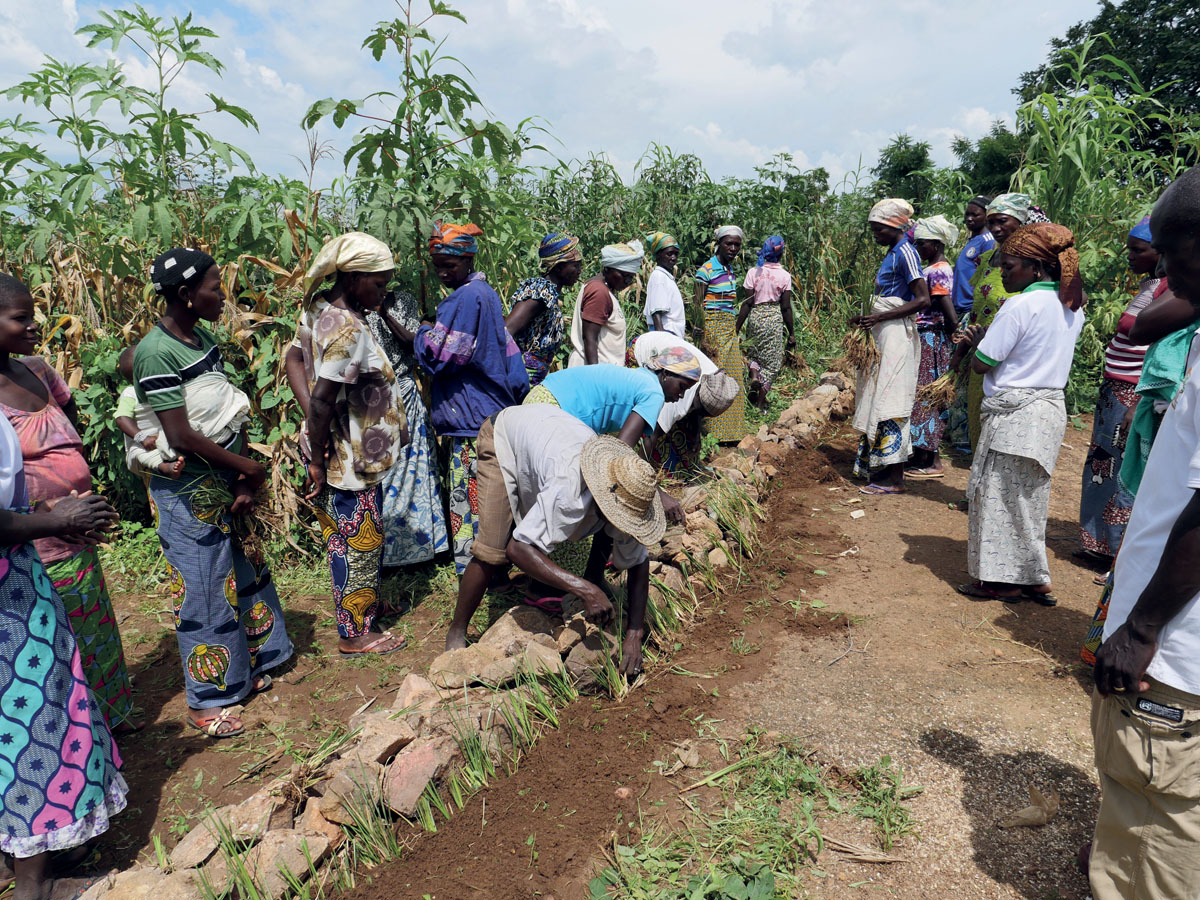[LUM#15] Revisiting intensification models in Africa
The challenge facing agriculture in Africa is to produce more to feed a growing population. agriculture in Africa. Can this necessary intensification be achieved through agroecology? Lum put this question to agronomists Nadine Andrieu and Eric Scopel*, co-leaders of the Agroecological Transitions " at CIRAD.

Enhancing ecological processes for more sustainable agricultural production is one of the principles of agroecology. It's another way of looking at the production process, based on the proper use of natural resources such as water, soil and biodiversity," explains Eric Scopel. Its implementation allows us to be less dependent on external inputs , particularly chemicals". We are also less dependent on energy sources such as oil.
Agriculture without pesticides and tractors? Not completely," moderates the agronomist, " the idea is not to do away with them, but to try to be as little dependent on them as possible and to make the most appropriate use of them. It's another vision of agriculture. A vision with multiple dimensions: scientific, practical, but also social and philosophical. " Agroecology questions the role of agriculture in feeding humanity, with a long-term vision: we can't jeopardize the agroecosystem we're working on if in 10 years we can't use it!
Pesticide cocktails
Agro-ecological practices may be ancestral, but the scientific version of the term began to take root in the 1980s, first in America, before spreading to the rest of the world. And in Africa? " The concept of agroecology emerged relatively late, even though certain NGOs were already concerned with reducing the use of pesticides on the continent, particularly in market gardening, which consumes a lot of them," explains Eric Scopel.
This is one of the paradoxes of the African continent, where the green revolution is still in its infancy. "For example, the level of nitrogen fertilizer use is 10 times lower than in France. But the phytosanitary market still exists, and certain sectors resort to anarchic use of these products, without standards or controls". In the absence of information and technical assistance, some farmers use cocktails of pesticides indiscriminately, with serious consequences for health and the environment. "These practices lead to pollution problems, such as the contamination of groundwater".
Agriculture is undergoing radical change, and faces a major challenge: feeding a growing population that is set to double by 2050. Average production levels in Africa are 8 times lower than in Europe, so it's imperative to increase productivity to feed everyone," explain the specialists. What we need to do now is consider which intensification model to develop on the African continent".
Fragile fertility
Can agroecology and intensification go hand in hand? For the two agronomists, the answer is yes: "we can imagine achieving +50% production and going from 1 tonne per hectare to 1.5 tonnes by adopting good agronomic practices". These practices are all the more relevant in tropical environments, where soil fertility is challenged by climatic conditions. "All it takes is a heavy rain to wash away the humus layer of the soil, making it unfit for cultivation. We really need to work on soil management to slow down the natural degradation processes". What does this mean in practice? " Maintaining plant cover, mulching, creating field boundaries to better manage surface runoff, reducing tillage - these practices all help to protect the soil's fertility capital, which is more fragile in Africa", explains Eric Scopel, who describes agroecology as a model that is "low in inputs but intensive in knowledge". And labor-intensive, as Nadine Andrieu points out: "This may mean an increased workload for the farmer and his family, so we also need to explore ways of reorganizing work".
To intensify production, agro-ecology also proposes to play on the complementarity of species, for example by bringing together legumes and cereals, whose crops are complementary. Legumes live in symbiosis with a bacterium that has the ability to fix atmospheric nitrogen and transform it into a mineral form available to plants, acting as a natural fertilizer", explains the agronomist. Bringing biodiversity back into farms by moving towards polycultures is beneficial for food and nutritional security".
Creating the conditions for transformation
But the recipe is not always easy to apply. "In Europe, governments are showing a stammering but firm awareness of the need for the agroecological model, but this is not always the case in Africa, where a modern vision of agriculture based on inputs, tractors and monoculture is still sometimes defended. This discourse coexists with another that promotes agroecology," says Nadine Andrieu. This is a tricky position for researchers, given that Europe itself has developed a policy of maximizing yields without seeking compromise...
Hence the importance of involving all players in the sector, and at all levels: farmers of course, but also traders, cooperatives, local researchers... Not forgetting national and international political players: "we need to work on all these dimensions at the same time to create the best conditions for this transformation in the field. There is a real need to revisit intensification models in Africa, and if everything aligns, then we can seriously envisage meeting food needs through agroecology".
UM podcasts are now available on your favorite platforms (Spotify, Deezer, Apple podcasts, Amazon Music...).
* Eric Scopel: Aïda research unit Agroecology and sustainable intensification of annual crops - CIRAD
Nadine Andrieu: UMR Innovation and development in agriculture and food (INRAE-Cirad-Institut Agro)